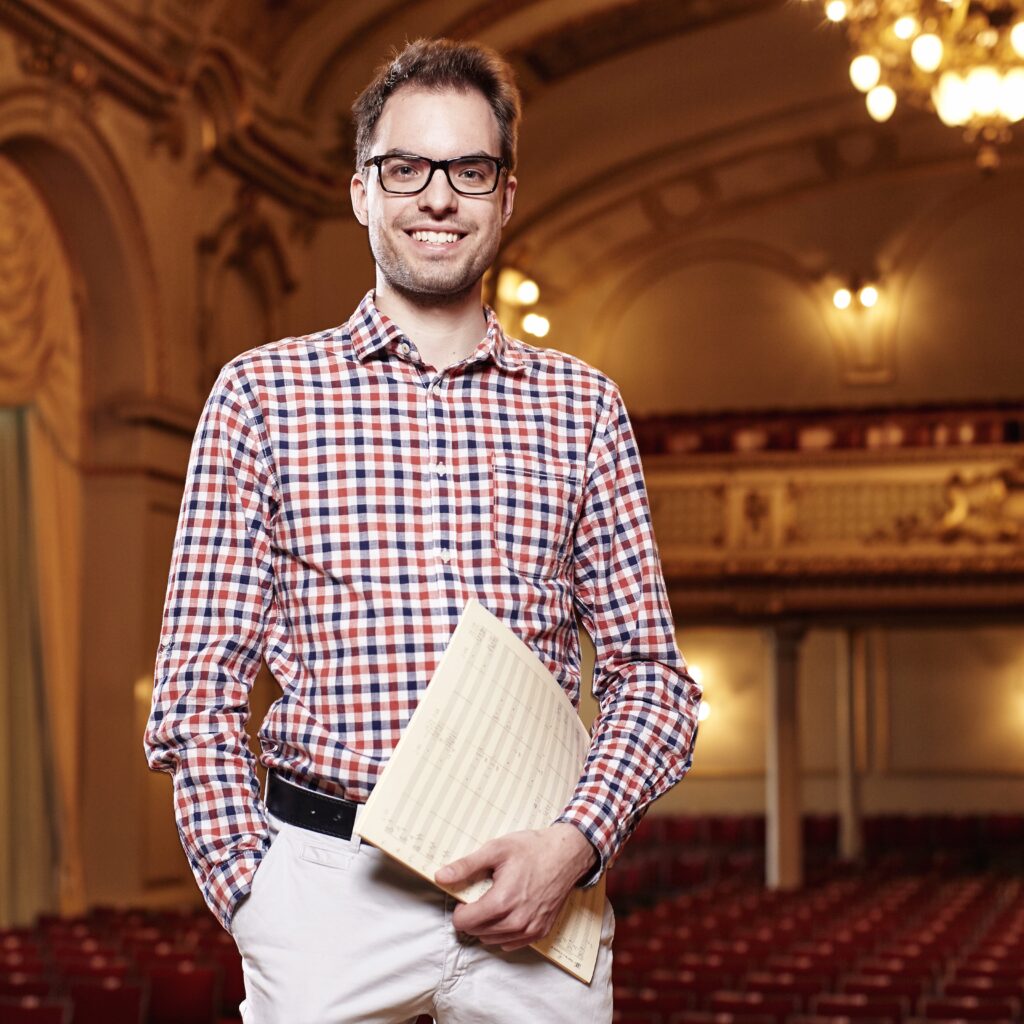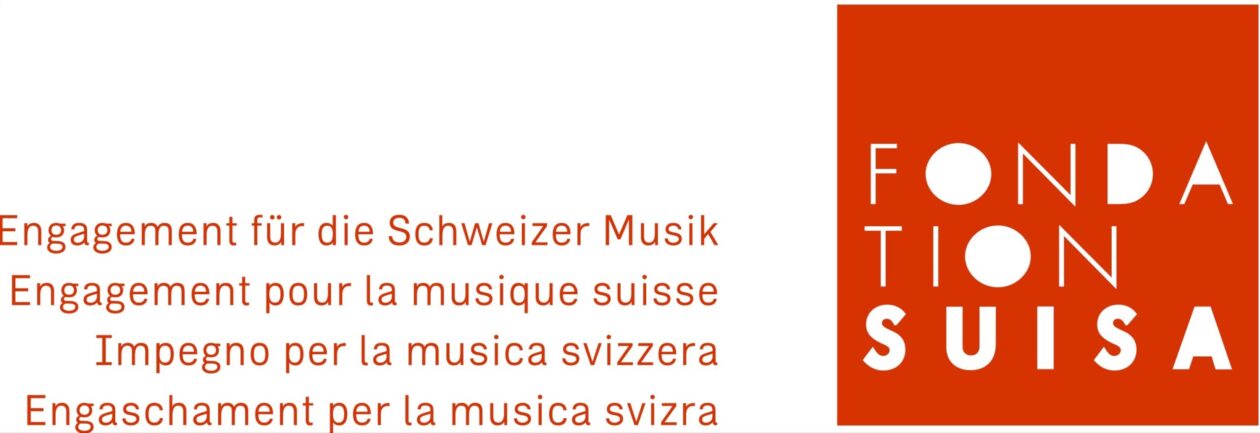«Get Going!» Portrait Series 2018

In his work, composer Michael Künstle deals with the interplay between tonal dramatisation and dramatic tones. The 27-year-old Basel resident would now like to take the next step forward in his research by making the sound of an orchestra a spatial experience for the listener. FONDATION SUISA is supporting this project financially with «Get Going!» funding.
In his work, composer Michael Künstle deals with the interplay between tonal dramatisation and dramatic tones. The 27-year-old Basel resident would now like to take the next step forward in his research by making the sound of an orchestra a spatial experience for the listener. FONDATION SUISA is supporting this project financially with «Get Going!» funding.
Michael Künstle was completely surprised to win the International Film Music Competition in the 2012 Zurich Film Festival when he was just 21. „At that time, I had just begun my studies,“ he comments today, adding, „I am only just starting to understand the significance of this prize now. It was a kind of springboard, also because it has always been an award for competence that nobody can take away from you.“
In the competition, Künstle was up against 144 fellow composers from 27 countries who were all set exactly the same task: composing the score for the short animated film „Evermore“ by Philip Hofmänner. Anyone watching the film today can imagine what might have impressed the jury back then: Künstle came up with amazingly subtle sounds, which enhanced the story of the film.
“The fantastic thing about film music is that it is the result of a close exchange with others. A film represents an interplay between countless people and it is vital to take all aspects into consideration: camera work, use of colour and setting,“ is the way Künstle explains his fascination with the genre. “The biggest challenge in a film is to say something with the music which has not yet been said in words or pictures, but which is essential for telling the story right up to the end.“
Whether it is in Gabriel Baur’s „Glow“, „Sohn meines Vaters“ by Jeshua Dreyfus or „Cadavre Exquis“ by Viola von Scarpatetti: the list of films for which Künstle is responsible for the soundtrack keeps on getting longer. The enthusiasm with which Künstle expresses his specialist know-how and thirst for knowledge in conversation is contagious. Also if he is talking about the greats in this field: Bernard Hermann’s knowledge of composition, for instance, or the unique capability of John Williams, „whose works clearly sound like orchestral pieces when listened to without the film, even though they suit the film for which they were written perfectly. This is incredibly difficult to accomplish, because symphonic music traditionally allows closer narrative structures than a film.“
Although he differentiates between concert music and film scores in his own work, he admits „that you can never fully give up one if you do the other.“ Elements that he developed in collaboration with director Gabriel Baur for the film „Glow“ found their way into the piece „Résonance“, performed by Trio Eclipse in 2016. “But in my concert music, it is mainly a question of compositional forms and structural ideas that cannot be expressed in the film.“
The idea for the project, that FONDATION SUISA is now going to jointly finance with a «Get Going!» grant, ultimately arose from another important aspect of Künstle’s creativity. Künstle follows, as he emphasises, a philosophy of the „real“ which is as close as possible to an actual recital, thanks to the most up-to-date recording techniques. In collaboration with his working partner, Daniel Dettwiler, who owns the „Idee und Klang“ [Idea and Sound] studio in Basel, and who, for years, has been researching new recording techniques, Künstle would like to create a spatial composition that can be listened to in a way that had not existed before.
„In contemporary music, the space is often just as important as other compositional elements, such as the subject matter or rhythm, but this essential aspect is often lost in the recording,“ is the way he explains the starting point. “I want to reach a point where people listening on headphones hear the three-dimensional space occupied by the orchestra during recording, as if they could literally ‚feel‘ the music.“ For many years, this research and in a specific way also the conquest of these „orchestral spaces“, was just an idea for Künstle, because, as he stresses, „You can only make this happen in a studio with the best possible sound and the best microphones available.“ Thanks to «Get Going!», the next step in this audiophile revolution can now become a reality and in no-less than London’s legendary Abbey Road Studios with an 80-piece orchestra. Therefore, Künstle will compose a piece in which the space where the recording takes place will play a central role. “I want to turn the composition process on its head,“ is how he underscores the objective of his project. „Just like film music,“ he adds. Again here, first and foremost you start with what you hear. Therefore completing the circle.
Rudolf Amstutz



